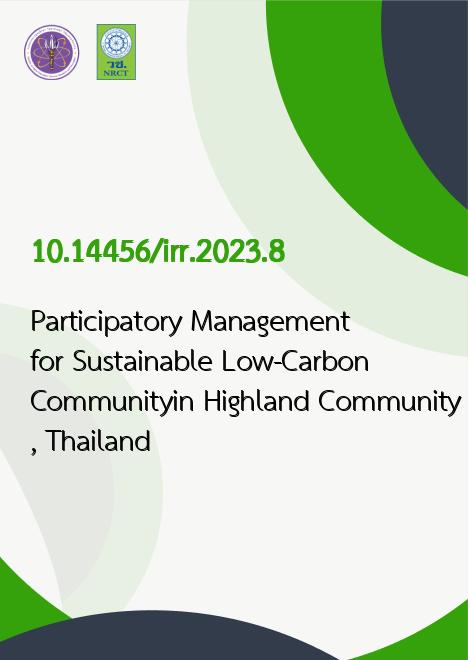
|
Participatory Management for Sustainable Low-Carbon Communityin Highland Community, Thailand |
|---|---|
| รหัสดีโอไอ | |
| Creator | Katesuda Sitthisuntikul |
| Title | Participatory Management for Sustainable Low-Carbon Communityin Highland Community, Thailand |
| Contributor | Sayam Aroonsrimorakot, Kampanad Bhaktikul, Kanitta Satienpeerakul, Weerasak Rungreuangwong, Sumalee Mensin, Pattaraporn Jewaou, Wanlapa Outong, Sidthipong Sathawong |
| Publisher | Phetchaburi Rajabhat University |
| Publication Year | 2566 |
| Journal Title | Interdisciplinary Research Review (IRR) |
| Journal Vol. | 18 |
| Journal No. | 5 |
| Page no. | 9-15 |
| Keyword | food waste, compost, household compose bin |
| URL Website | https://ph02.tci-thaijo.org/index.php/jtir |
| Website title | Interdisciplinary Research Review (IRR) |
| ISSN | 2697-536X |
| Abstract | The concept of sustainable development by using participatory management is trendily favored for developing low-carboncommunities. This research aimed to investigate participatory management for developing sustainable low-carbon communi-ties, community performances in sustainable low-carbon communities, and contributing factors of these performances. Theresearch area was located at Pa Pae Village, Pa Pae Sub-District, Mae Sa Rieng District, Mae Hong Son Province, Thailand.Data were analyzed from in-depth interviews, focus groups, and document investigations. The results indicated that partic-ipatory management consisted of a cycle of three stages, need identification, planning, and implementation, which requiredcommunity meetings to make discussion and decision. The performances in sustainable low-carbon communities also involvedenvironmentally friendly agriculture, forest restoration, conservation, community health management, community strength, andefficient use of resources. These performances relied on socio-culture of community, community leaders, and encouragement ofagency. Therefore, participatory management should include the stage of evaluation. Leadership development in participatorymanagement should be also focused to continue the community performances in sustainable low-carbon communities, alongwith encouraging active social learning process to achieve the goal of sustainable development. |